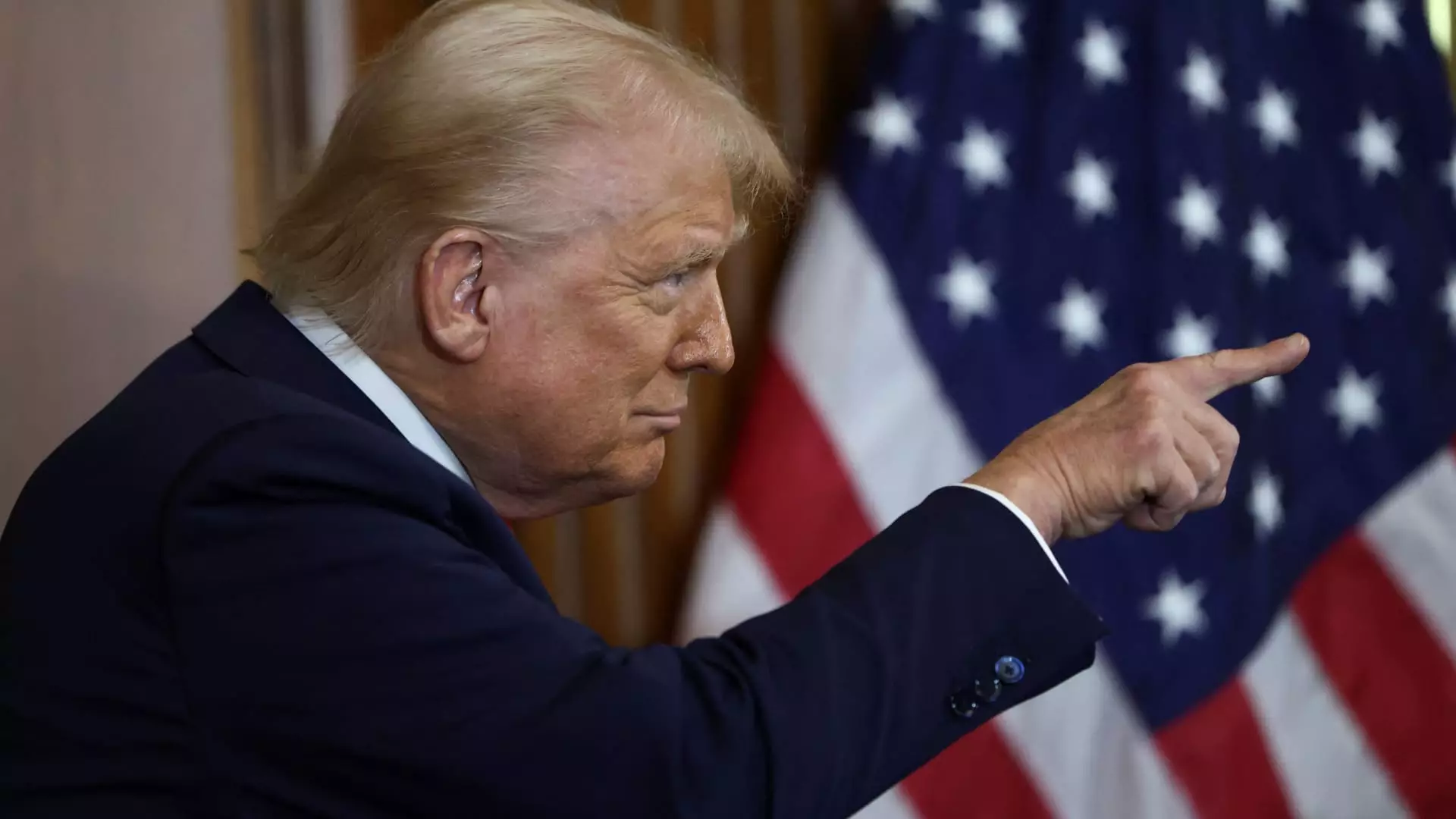In a surprising twist, former President Donald Trump is advocating for a tax hike on the nation’s wealthiest individuals. As discussions swirl around funding a comprehensive spending and tax package, Trump has proposed an increase in the top federal income tax rate, suggesting a return to 39.6% for those earning $2.5 million or more. This move has left many Republican lawmakers scratching their heads, as it runs counter to the 2017 Tax Cuts and Jobs Act (TCJA) that Trump previously championed. By embracing this tax hike, Trump could be shifting the national dialogue on wealth distribution and fiscal responsibility.
Wealth Redistribution: A Shift in Republican Sentiments
Traditionally, Republican ideologies have leaned towards lowered taxes on the wealthy as a means of stimulating economic growth. Trump’s newfound willingness to endorse a tax increase for ultra-high earners challenges the very core of this belief. By suggesting that “Republicans should probably not do it, but I’m OK if they do!!!,” he seems to be conditionally supporting a movement that could disrupt the established Republican narrative, potentially leading to a significant realignment of party principles. His focus on closing carried interest loopholes, which primarily benefit the wealthy, indicates a burgeoning acknowledgment of economic inequity among conservatives.
The Broader Economic Implications
Introducing a higher tax rate for the rich could generate substantial revenue, which proponents argue is crucial for maintaining safety nets such as Medicaid and delivering tax relief to the middle and lower classes. The economic landscape is complex, consisting of varying opinions about how to finance public services without placing the burden on those with less income. The Yale Budget Lab’s Natasha Sarin has pointed out that many current proposals do not align with the revenue needed. This raises questions about not just fiscal policy, but also the broader moral implications of wealth distribution in society.
As it stands, the current Republican leadership is caught between the allure of attracting financial support from wealthy donors and the necessity of appealing to a broader base disillusioned by growing income disparities. Trump’s initiative can thus be perceived as a reflection of that disruption—an urgent call to address economic inequality in a party that has largely avoided such discussions.
Public Sentiment: The Untapped Potential of Tax Reformation
For many Americans, the idea of wealth reallocation rings with unprecedented clarity. Surveys indicate that a sizable portion of the populace supports higher taxes on the wealthy to fund social programs. As economic uncertainty looms, could Trump’s proposal usher in a new era of financial obligation for the rich? Given that polls reveal a significant majority favor increased taxes on the wealthiest to cater to the socioeconomic needs of struggling citizens, Trump’s approach could resonate powerfully with voters yearning for change.
Moreover, the return to pre-TCJA tax rates would not only symbolize a shift in fiscal priorities but would likely incite a ripple effect across various sectors. By reinvesting in services that support lower and middle-class families, the economy could experience enhanced consumer spending and a resurgence in community health.
Conflict Within the Republican Ranks
Despite Trump’s proposals, resistance from within the Republican Party remains a central theme. Many GOP members are hesitant to disrupt the consistent policy of tax reduction that has characterized their platform. This internal discord brings forth a vital dilemma: will Trump’s influence be able to forge a path forward, or will traditionalists win out, clinging to outdated practices that neglect growing economic disparities? The mixed signals can create confusion among voters and policymakers alike.
Republicans currently face a challenging equation of balancing fiscal responsibility while addressing pressing social issues. If Trump’s vision gains traction, it could shift the party’s trajectory towards a more progressive approach that embraces elements of social welfare—a profound transformation for the historically conservative institution.
Trump’s unexpected discourse might just be the catalyst for an overdue conversation on equitable distribution of wealth and fiscal accountability, pushing Republicans toward a reconsideration of their stance on taxation. As the dialogue continues, the economic future of America teeters on the edge of a potentially groundbreaking reform.

